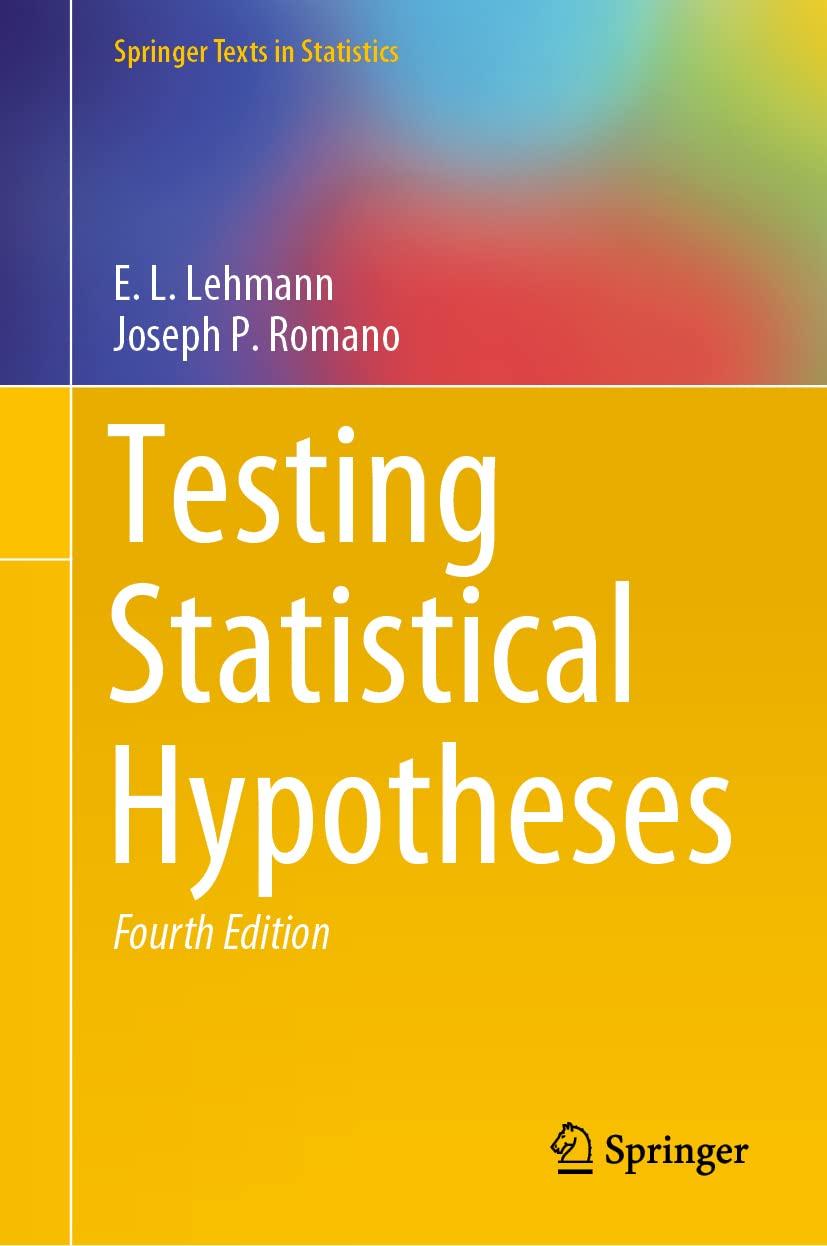For testing H1,..., Hs based on p-values p1,..., ps, suppose the closure method is applied and large
Question:
For testing H1,..., Hs based on p-values pˆ1,..., pˆs, suppose the closure method is applied and large values of Tk = Tk (pˆi1 ,..., pˆik ) is used to test the intersection hypothesis HK , where K = {i1,...,ik }. Assume Tk is symmetric in its arguments, and the test rejects HK when Tk exceeds some critical value tk (1 − α), which only depends on the number k of p-values tested and α. Further assume Tk is nonincreasing in each component, or that Tk is nondecreasing as each component pˆi j decreases (so smaller p-values makes it easier to reject for large values of Tk ).
(i) Show that, when applying the closure method when using such tests, it suffices to calculate order s2 number of tests (and so not order 2s). Hint: To show, for example, that H1 is rejected by the closure method, any intersection test based on k hypotheses much be rejected, i.e., Tk (pˆ1, pˆi1 ,..., pˆik−1 ) must be > tk (1 − α) for any choice of i1,...,ik−1. But, it then suffices to consider H1 together with the k − 1 hypotheses corresponding to the largest k − 1 p-values (not including pˆ1). Thus, for testing H1, only at most k tests need be performed.
(ii) Verify the conditions for the Higher Criticism statistic HCs as well as Fisher’s statistic Fs.
Step by Step Answer:

Testing Statistical Hypotheses Volume I
ISBN: 9783030705770
4th Edition
Authors: E.L. Lehmann, Joseph P. Romano






